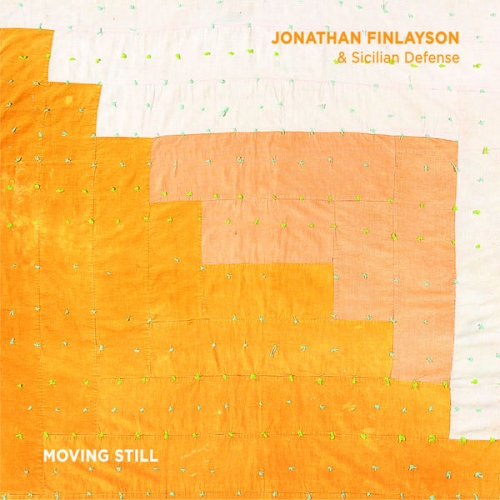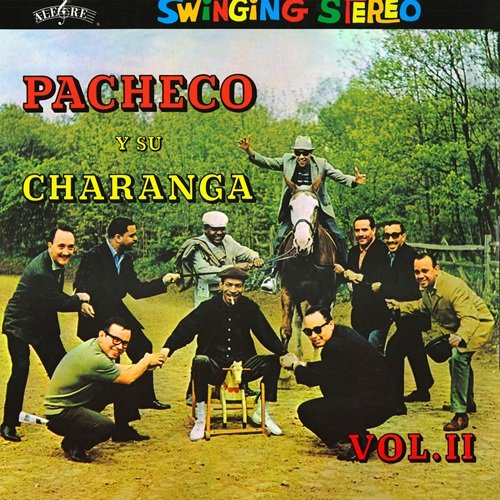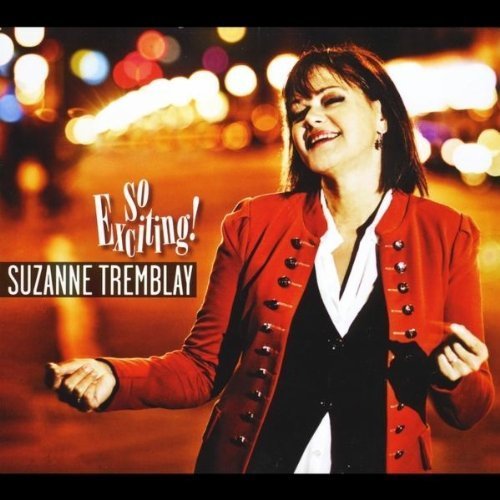Roger Whittaker - My Last Farewell - Bilder eines Lebens (2024)
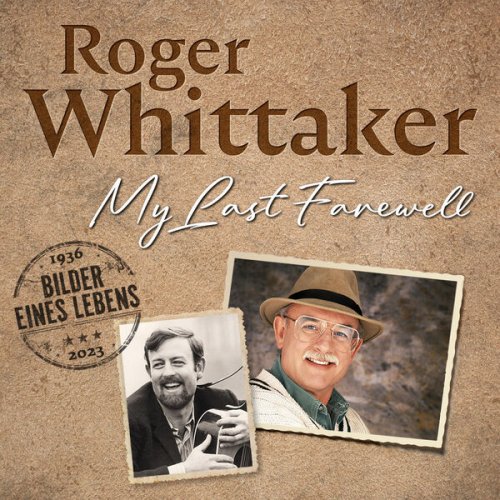
Artist: Roger Whittaker
Title: My Last Farewell - Bilder eines Lebens (
Year Of Release: 2024
Label: Sony Music Catalog
Genre: Schlager, Pop
Quality: Mp3 320 kbps / FLAC (tracks)
Total Time: 03:38:11
Total Size: 505.0 MB / 1.5 GB
WebSite: Album Preview
Tracklist:Title: My Last Farewell - Bilder eines Lebens (
Year Of Release: 2024
Label: Sony Music Catalog
Genre: Schlager, Pop
Quality: Mp3 320 kbps / FLAC (tracks)
Total Time: 03:38:11
Total Size: 505.0 MB / 1.5 GB
WebSite: Album Preview
CD1
01. Endlich bist du wieder hier
02. Albany (Live 1989)
03. Wir sind jung (Oh Maria)
04. Wenn es dich noch gibt
05. Ein glückliches Zuhaus
06. Einfach leben (Album Version)
07. Du - Du bist nicht allein
08. Leben mit dir
09. Eloisa
10. Sag ihr
11. Bring mir noch einmal die Jahre zurück
12. Yarmouth Kai
13. Glaubst du noch an Wunder (with Jessica Whittaker) (Duett mit Jessica Whittaker)
14. Die letzte Rose
15. Sieben Jahre, sieben Meere
16. Abschied ist ein scharfes Schwert
17. Good Night Lady
18. Du bist das Licht tief in mir
19. Es wird Nacht
20. Roger Whittaker & Stereoact - Ein bisschen Aroma (Stereoact Remix)
21. Roger Whittaker & Stereoact - Roger Whittaker - Stereoact Hitmix
CD2
01. Fanfare - My Last Farewell / Zurück zur Liebe - Back to Love (Deutsch - englische Version 2024)
02. River Baion (German Version 2024)
03. Der Himmel über mir (Remix 2024)
04. Tanz heut nacht mit mir (Remix 2024)
05. Lass mich bei dir sein (Remix 2024)
06. Sing ein Lied (Song Sung Blue) (feat. Patrick Lindner) (Duett mit Patrick Lindner)
07. Maiden Song (Early one Morning) (Version 2024)
08. The Leaving Of Liverpool (Version 2024)
09. Gipsy
10. You Are My Sea (Du bist das Meer)
11. Desert Eagles
12. Two Eagles (Zwei Adler)
13. Sail away
14. Surf (Whistler)
15. Die schneeweißen Tauben (Version 2024)
16. Der Mann von nebenan
17. Die schönen Zeiten
18. Roger Whittaker & Helmut Lotti - The Last Farewell (Duett mit Helmut Lotti)
CD3
01. Roger Whittaker & Des O'Connor - The Skye Boat Song
02. Oh Africa
03. My Land Is Kenya (Live From The Tivoli 1989)
04. The Gerenuk Song
05. S.A.F.A.R.I. - Rap (Live At The Fairfield Halls - Croydon)
06. The Last Farewell (Version 1982)
07. Durham Town (The Leavin')
08. New World in the Morning
09. Morning Has Broken
10. Streets of London
11. Try To Remember
12. Tu Es Ma Mélodie (You Are My Miracle)
13. Roger Whittaker & Anny Schilder - A Perfect Day (Duett mit Anny Schilder)
14. The Wind Beneath My Wings
15. Leaving on a Jet Plane
16. Gentle on My Mind
17. Your Voice
18. Only the Lonely
19. Everything I Do, I Do It For You
20. What A Wonderful World (Live From The Tivoli 1989)
21. Always on My Mind
22. Elvis Presley - The Last Farewell
With his avuncular appearance, rich baritone, and whistling prowess, African-born British pop singer Roger Whittaker seemed like a late successor to Bing Crosby when he emerged to worldwide popularity in the 1970s. Already a success throughout Europe and Canada, Whittaker was almost 40 when he made his biggest impact in the U.S. with his 1975 hit "The Last Farewell." He continued to chart with the occasional single or album Stateside, though in the '80s and '90s, his biggest audiences remained in Europe. He enjoyed a particularly high status in Germany, where his phonetically learned German-language albums helped turn him into a lasting star of the Schlager market. While critical accolades were often hard to come by, Whittaker was a fan favorite around the world and presented himself as something of an everyman, performing frequently on television, where he also hosted several of his own programs. When he was dropped from his record label, he became one of the first artists to market his albums through television commercials. Many of his best-known songs, like "Durham Town (The Leavin')" and "I Don't Believe in 'If' Anymore," were self-written, though the sheer volume of recordings he produced led him to turn increasingly toward interpretive singing. Whittaker continued to nurture his devoted fan base, touring regularly into the 21st century before retiring to the South of France in 2013.
The son of immigrants from Staffordshire, England, Whittaker was born in Nairobi, Kenya, on March 22, 1936. His father, Edward Whittaker, owned a grocery store, for which his mother, Viola Whittaker, kept the books; she later worked as a teacher. He took up the guitar at the age of seven and learned to sing songs in Swahili, but he didn't think of music as a career until much later. In 1956, he entered the University of Cape Town, South Africa, as a medical student, but flunked out in his second year and returned to Nairobi, where he taught primary school and performed in nightclubs. In September 1959, Whittaker moved to the U.K. and began attending Bangor University in Wales, where he studied science with the intention of furthering his teaching career. He also continued to sing in clubs, and in the early '60s, a few of his recordings were issued on flexi-discs included with a campus publication, the Bangor University Rag, and credited to Hank & the Mellomen, to raise money for charity. This brought him to the attention of Fontana Records, which signed him to a contract and released his first professional single, "The Charge of the Light Brigade," credited to Rog Whittaker, in 1962. His second single was a cover of American country singer Jimmy Dean's "Steel Men." It gave him his first chart entry near the bottom of the New Musical Express Top 30 in June 1962, just as he was passing his final exams. So, instead of going on for his PhD, Whittaker acquired a manager and turned to singing full-time, soon gaining a residency on This and That, a television show in Ulster, Northern Ireland. The next few years, Whittaker struggled to make a living on the British cabaret circuit, but in the spring of 1967 he won a prize at the Knokke Song Festival in Belgium, leading to recordings of his composition "The Mexican Whistler" and his version of "If I Were a Rich Man" from the musical Fiddler on the Roof. Both became hits in Europe, breaking him as a headlining concert attraction on the continent.
By 1968, Whittaker had switched record labels to EMI, which assigned him to its Columbia imprint (no relation to the American Columbia Records). In the fall of 1969, he scored his first Top 20 hit in Britain with the self-written "Durham Town (The Leavin')." He was signed to RCA Victor Records for the U.S., and in the spring of 1970 another of his compositions, the sunny, uptempo "New World in the Morning," became a Top 20 hit on the American Easy Listening chart. At the same time, his British single was the melodramatic, anti-war original "I Don't Believe in 'If' Anymore," which reached the Top Ten. RCA released Whittaker's first American album, New World in the Morning, while in the U.K., an album titled I Don't Believe in "If" Anymore gave him his first chart LP as he accepted offers to host a children's television show and a radio series. ("New World in the Morning" went on to become one of his more valuable copyrights as a songwriter, earning covers by Eddy Arnold and Al Martino, among others.)
Whittaker continued his success on both sides of the Atlantic and, indeed, around the world, in 1971. The philosophical "Why?," for which he had composed the music to a lyric submitted by amateur writer Joan Stanton as part of a contest on his radio show, reached the American Easy Listening chart and the British pop chart, and it won the U.K.'s coveted Ivor Novello songwriting award for 1971-1972. Whittaker also returned to British charts with his New World in the Morning album and made the U.K. Top 40 with "Mammy Blue." He also released the album A Special Kind of Man, which included "The Last Farewell," a romantic ballad of war and separation he had composed and set to lyrics sent in by another amateur writer, Ron Webster, as part of the same radio competition that produced "Why?"
Whittaker had another British television series in 1972, this time one for grown-ups, and he continued to record and perform around the world. He had some success in Scandinavia, where his 1974 Finnish Eurovision submission, "The Finnish Whistler," later became the theme song for a popular cooking show. In the winter of 1975, "The Last Farewell" belatedly began to attract attention in the U.S. after the wife of an Atlanta radio programmer heard it on vacation in Canada and induced her husband to put it on the air. The four-year-old track was released as a single that topped the easy listening chart and made the Top 20 of the pop chart before going on to become an international hit. It peaked at number two in the U.K. during the summer and won Whittaker a second Ivor Novello Award. (It also attracted numerous cover versions, including one by Elvis Presley on his 1976 album From Elvis Presley Boulevard, Memphis, Tennessee.)
Meanwhile, RCA (which had previously dropped Whittaker and then hastily re-signed him) capitalized on his success with the gold-certified compilation album The Last Farewell and Other Hits in the U.S. A similar British compilation, The Very Best of Roger Whittaker, reached the Top Ten. As he turned 40 in 1976, Whittaker undertook his first tour of the U.S., where "Durham Town (The Leavin')" belatedly made the easy listening chart, followed by the Top 20 "The First Hello, The Last Goodbye." He returned to the American easy listening chart in February 1977 with "Before She Breaks My Heart," and while RCA's release of The Best of Roger Whittaker never made the charts, over the next few years it steadily climbed to gold certification. Meanwhile, he hosted another British TV series, Whittaker's World of Music, in 1977.
In the late '70s and early '80s, Whittaker continued to score minor chart entries in the U.S. and the U.K., but it was in Germany that he found a surprisingly strong foothold. Although he didn't speak the language, the singer courted German audiences with phonetically learned Deutsche versions of his songs, which endeared him to the country's record-buying public. He released his first German-language album, Mein Deutsches Album, in 1979, and for the remainder of his career, Germany remained a Whittaker stronghold where he was a highly regarded Schlager singer with dozens of albums and tours to his credit.
He continued to pursue American audiences, though he never again achieved the success of his mid-'70s breakout. In the U.K., his chart hits were all compilation albums like 20 All Time Greats (1979) and The Roger Whittaker Album (1981). In 1982 Whittaker returned to Kenya for the first time in two decades, commemorating the occasion with the 1984 album and documentary In Kenya: A Musical Safari. Having launched his own Tembo Records company ("tembo" is the word for elephant in Swahili), he then licensed his recordings to Main Street Records in the U.S., and the label made a push to establish him as a country singer, getting "I Love You Because" into the lower reaches of the country chart in late 1983 and achieving a six-month country chart run for All Time Heart Touching Favorites in 1984. In late 1986, Whittaker notched another British Top Ten with "The Skye Boat Song," in a duet with comedian Des O'Conner. He continued to chart occasionally over the next decade with albums like Home Lovin' Man (1989) and A Perfect Day -- His Greatest Hits & More (1996). Often, his albums repackaged older recordings with perhaps one or two new tracks. Thus, if he did make a new album, it was an event. When Awakening appeared on RCA in 1999, it was promoted as "The first totally original Whittaker album in over seven years. Contains all new material!"
After completing a tour of Germany (by then his strongest market) in 2001, a 65-year-old Whittaker announced his retirement from performing, and he settled down with his wife of 37 years in Ireland. Like many musical performers, however, he was unable to hold to this declaration and resumed performing within a few years. He continued to tour regularly until 2013, when he again retired, this time keeping his word. Whittaker died on September 13, 2023, at a hospital in the South of France, where he had spent his final decade; he was 87 years of age.
The son of immigrants from Staffordshire, England, Whittaker was born in Nairobi, Kenya, on March 22, 1936. His father, Edward Whittaker, owned a grocery store, for which his mother, Viola Whittaker, kept the books; she later worked as a teacher. He took up the guitar at the age of seven and learned to sing songs in Swahili, but he didn't think of music as a career until much later. In 1956, he entered the University of Cape Town, South Africa, as a medical student, but flunked out in his second year and returned to Nairobi, where he taught primary school and performed in nightclubs. In September 1959, Whittaker moved to the U.K. and began attending Bangor University in Wales, where he studied science with the intention of furthering his teaching career. He also continued to sing in clubs, and in the early '60s, a few of his recordings were issued on flexi-discs included with a campus publication, the Bangor University Rag, and credited to Hank & the Mellomen, to raise money for charity. This brought him to the attention of Fontana Records, which signed him to a contract and released his first professional single, "The Charge of the Light Brigade," credited to Rog Whittaker, in 1962. His second single was a cover of American country singer Jimmy Dean's "Steel Men." It gave him his first chart entry near the bottom of the New Musical Express Top 30 in June 1962, just as he was passing his final exams. So, instead of going on for his PhD, Whittaker acquired a manager and turned to singing full-time, soon gaining a residency on This and That, a television show in Ulster, Northern Ireland. The next few years, Whittaker struggled to make a living on the British cabaret circuit, but in the spring of 1967 he won a prize at the Knokke Song Festival in Belgium, leading to recordings of his composition "The Mexican Whistler" and his version of "If I Were a Rich Man" from the musical Fiddler on the Roof. Both became hits in Europe, breaking him as a headlining concert attraction on the continent.
By 1968, Whittaker had switched record labels to EMI, which assigned him to its Columbia imprint (no relation to the American Columbia Records). In the fall of 1969, he scored his first Top 20 hit in Britain with the self-written "Durham Town (The Leavin')." He was signed to RCA Victor Records for the U.S., and in the spring of 1970 another of his compositions, the sunny, uptempo "New World in the Morning," became a Top 20 hit on the American Easy Listening chart. At the same time, his British single was the melodramatic, anti-war original "I Don't Believe in 'If' Anymore," which reached the Top Ten. RCA released Whittaker's first American album, New World in the Morning, while in the U.K., an album titled I Don't Believe in "If" Anymore gave him his first chart LP as he accepted offers to host a children's television show and a radio series. ("New World in the Morning" went on to become one of his more valuable copyrights as a songwriter, earning covers by Eddy Arnold and Al Martino, among others.)
Whittaker continued his success on both sides of the Atlantic and, indeed, around the world, in 1971. The philosophical "Why?," for which he had composed the music to a lyric submitted by amateur writer Joan Stanton as part of a contest on his radio show, reached the American Easy Listening chart and the British pop chart, and it won the U.K.'s coveted Ivor Novello songwriting award for 1971-1972. Whittaker also returned to British charts with his New World in the Morning album and made the U.K. Top 40 with "Mammy Blue." He also released the album A Special Kind of Man, which included "The Last Farewell," a romantic ballad of war and separation he had composed and set to lyrics sent in by another amateur writer, Ron Webster, as part of the same radio competition that produced "Why?"
Whittaker had another British television series in 1972, this time one for grown-ups, and he continued to record and perform around the world. He had some success in Scandinavia, where his 1974 Finnish Eurovision submission, "The Finnish Whistler," later became the theme song for a popular cooking show. In the winter of 1975, "The Last Farewell" belatedly began to attract attention in the U.S. after the wife of an Atlanta radio programmer heard it on vacation in Canada and induced her husband to put it on the air. The four-year-old track was released as a single that topped the easy listening chart and made the Top 20 of the pop chart before going on to become an international hit. It peaked at number two in the U.K. during the summer and won Whittaker a second Ivor Novello Award. (It also attracted numerous cover versions, including one by Elvis Presley on his 1976 album From Elvis Presley Boulevard, Memphis, Tennessee.)
Meanwhile, RCA (which had previously dropped Whittaker and then hastily re-signed him) capitalized on his success with the gold-certified compilation album The Last Farewell and Other Hits in the U.S. A similar British compilation, The Very Best of Roger Whittaker, reached the Top Ten. As he turned 40 in 1976, Whittaker undertook his first tour of the U.S., where "Durham Town (The Leavin')" belatedly made the easy listening chart, followed by the Top 20 "The First Hello, The Last Goodbye." He returned to the American easy listening chart in February 1977 with "Before She Breaks My Heart," and while RCA's release of The Best of Roger Whittaker never made the charts, over the next few years it steadily climbed to gold certification. Meanwhile, he hosted another British TV series, Whittaker's World of Music, in 1977.
In the late '70s and early '80s, Whittaker continued to score minor chart entries in the U.S. and the U.K., but it was in Germany that he found a surprisingly strong foothold. Although he didn't speak the language, the singer courted German audiences with phonetically learned Deutsche versions of his songs, which endeared him to the country's record-buying public. He released his first German-language album, Mein Deutsches Album, in 1979, and for the remainder of his career, Germany remained a Whittaker stronghold where he was a highly regarded Schlager singer with dozens of albums and tours to his credit.
He continued to pursue American audiences, though he never again achieved the success of his mid-'70s breakout. In the U.K., his chart hits were all compilation albums like 20 All Time Greats (1979) and The Roger Whittaker Album (1981). In 1982 Whittaker returned to Kenya for the first time in two decades, commemorating the occasion with the 1984 album and documentary In Kenya: A Musical Safari. Having launched his own Tembo Records company ("tembo" is the word for elephant in Swahili), he then licensed his recordings to Main Street Records in the U.S., and the label made a push to establish him as a country singer, getting "I Love You Because" into the lower reaches of the country chart in late 1983 and achieving a six-month country chart run for All Time Heart Touching Favorites in 1984. In late 1986, Whittaker notched another British Top Ten with "The Skye Boat Song," in a duet with comedian Des O'Conner. He continued to chart occasionally over the next decade with albums like Home Lovin' Man (1989) and A Perfect Day -- His Greatest Hits & More (1996). Often, his albums repackaged older recordings with perhaps one or two new tracks. Thus, if he did make a new album, it was an event. When Awakening appeared on RCA in 1999, it was promoted as "The first totally original Whittaker album in over seven years. Contains all new material!"
After completing a tour of Germany (by then his strongest market) in 2001, a 65-year-old Whittaker announced his retirement from performing, and he settled down with his wife of 37 years in Ireland. Like many musical performers, however, he was unable to hold to this declaration and resumed performing within a few years. He continued to tour regularly until 2013, when he again retired, this time keeping his word. Whittaker died on September 13, 2023, at a hospital in the South of France, where he had spent his final decade; he was 87 years of age.


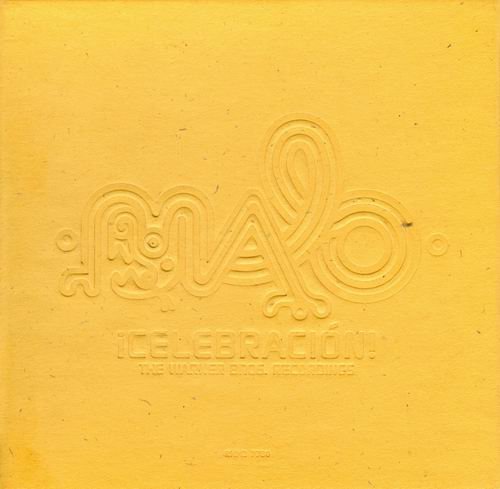
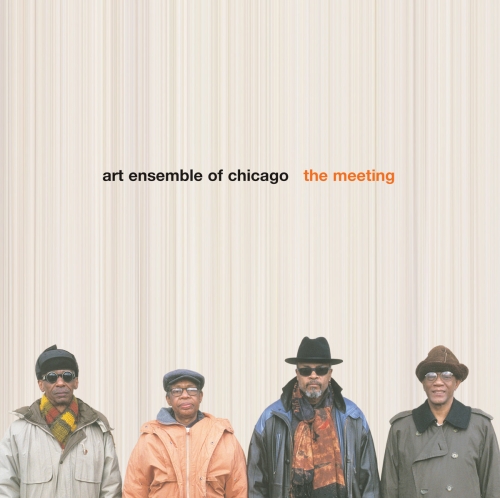
![Tulug Tirpan, Eylem Pelit, Volkan Oktem - Pow Trio - On Living (2026) [Hi-Res] Tulug Tirpan, Eylem Pelit, Volkan Oktem - Pow Trio - On Living (2026) [Hi-Res]](https://www.dibpic.com/uploads/posts/2026-01/1767943920_unln0j4m8w6km_600.jpg)
